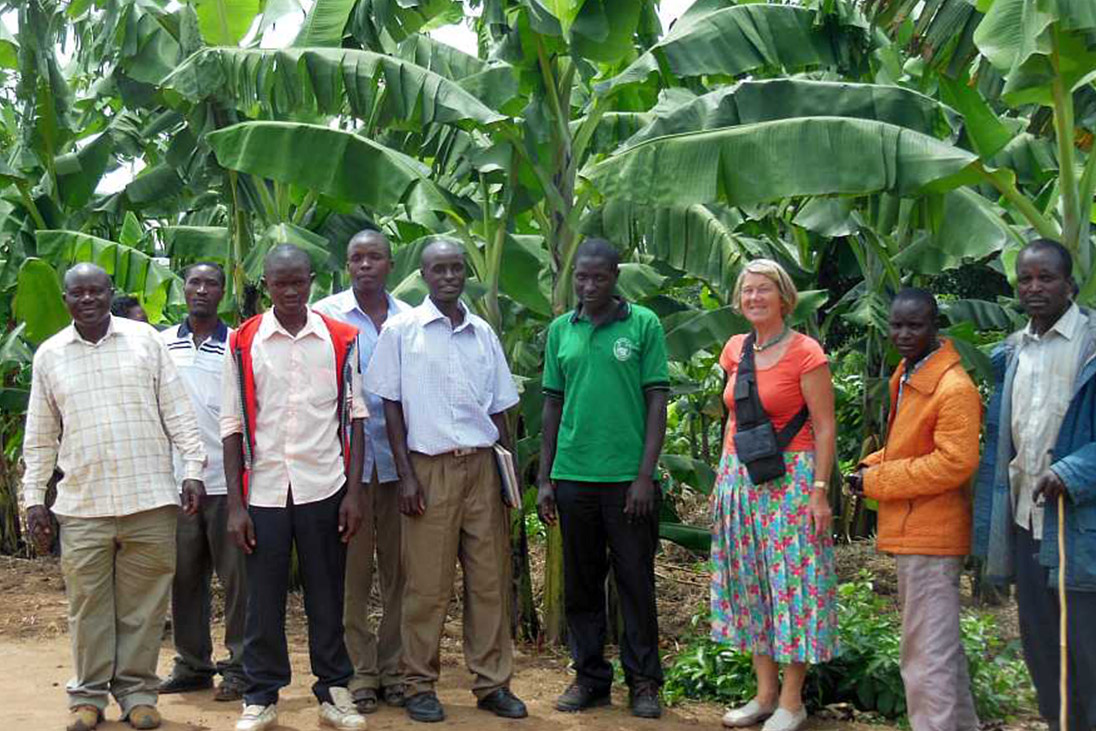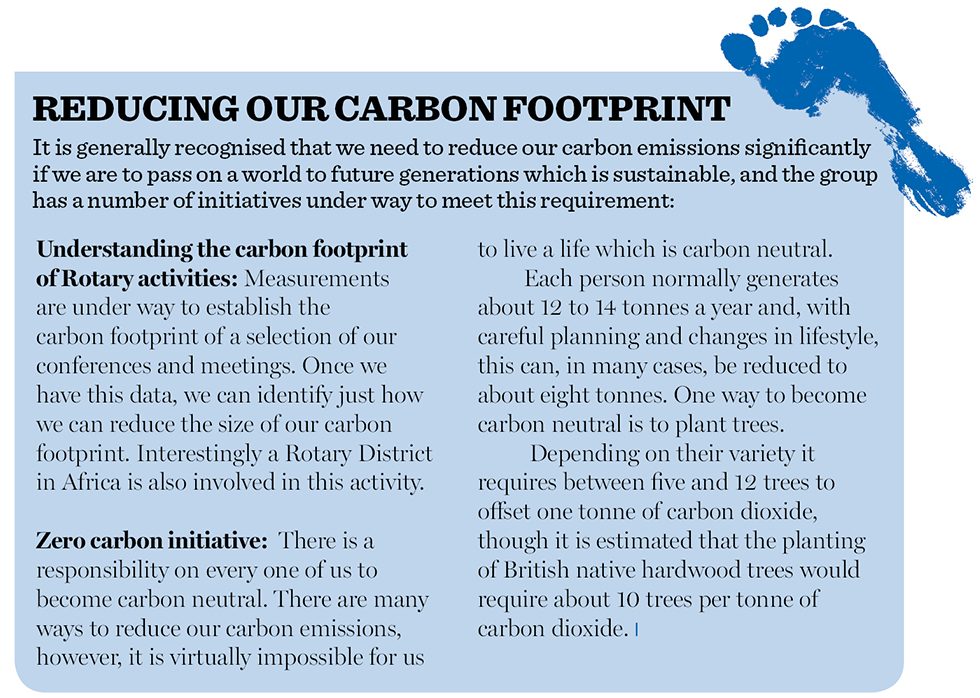Thanks to David Attenborough with his ‘Blue Planet’ television series and, more recently, Greta Thunberg, the 16-year-old Swedish climate activist, the public has once again become very concerned with environmental matters.
Rotary in Great Britain & Ireland established its Environmental Sustainability Group over 20 years ago, with the express purpose of raising the profile of environmental issues within the organisation and to encourage Rotarians to take action to address environmental sustainability.
But what is environmental sustainability?
A brief definition is that it requires that the demands placed on the environment today can be met without reducing the environment’s capacity to allow all people to live well, both now and in the future.
The Rotary GBI Group has recently introduced a suggested environmental policy for Rotary clubs and districts to adopt, if they wish, to demonstrate their environmental objectives.
There have been several successful initiatives over the past 20 years and here are just a few:
The Rodney Huggins Environment Award
Every year, the group manages the Rodney Huggins Environment Award which is open to Rotary clubs, or associated school and youth groups, through Rotary GBI to demonstrate their environmental projects and be recognised for those achievements.
The winner this year was Abingdon Vesper Rotary with its project protecting the environment in rural Mubende in Uganda by using fuel-saving stoves.
In Uganda, 85% of the population cook using wood or charcoal and this rises to 100% in rural areas, usually on open stone fires.
The project has reduced households’ consumption of wood by 66%, which has cut the rate of loss of trees in the local environment, protected soil erosion, retained rainwater in the soil and provided an enhanced environment for insect life.
On average, a reduction of 28 days per year collecting firewood means that the predominantly young women who perform this duty now have more time to go to school, work in their market gardens or undertake more productive tasks.


Abingdon Vesper Rotary’s project in Uganda has had significant impact on the community of Mubende, from improving air quality and reducing the loss of trees.
An added benefit is that having a chimney in the kitchen reduces the amount of smoke in that environment with consequent benefits to health.
Although this year’s winning project has an international theme, previous years have seen domestic projects recognised, such as the Tiverton Hospital Wildlife Garden in 2018, a project organised by Exe Valley (Tiverton) Rotary.
They started their project in April 2005 when they designed and created a wildlife garden in the newly-built Tiverton Hospital.
The garden measures approximately 40 metres x 10 metres and is separated from the adjacent sports field by a stretch of Devon bank.
It is next to medical wards whose windows overlook the area.
The area has been planted with trees and flower beds, containing a mixture of native plants, wild flowers and herbs known to be attractive to wildlife.
There are nest boxes and other suitable habitats to attract wildlife in general. A well-illustrated and informative signboard welcomes visitors and explains the importance of maintaining wildlife areas in our increasingly pressurised environment.
Encouraging young people’s interest in the environment
The group has developed a relationship with the National Association for Environmental Education which has started a pilot project in ‘The Heart of England’ Rotary District with a focus on plastic pollution, its causes and effects on wildlife.
The entries will all be displayed at an exhibition in Coventry for the final six months of 2019 with the aim of raising awareness of plastic pollution.
The group has also developed a new youth competition for the next academic year, encouraging schoolchildren of all ages to focus on the theme of ‘waste minimisation’.


Our carbon footprint is impacted by all aspects of our lives, from how to travel, to the food we eat and the clothes we wear.


























































